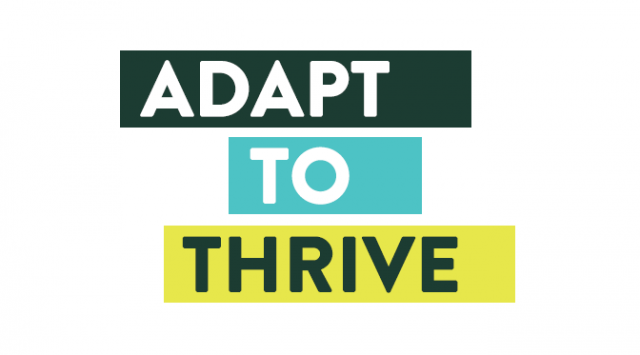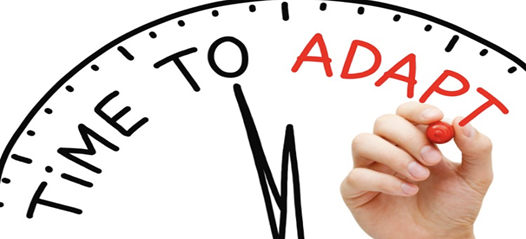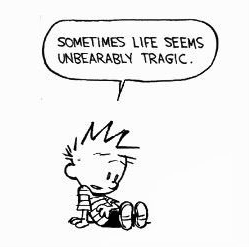
As a school, a state, a country and a world we are dealing with a crisis. Being in a crisis seems to be normal these days. If it is not the pandemic it is the environment (drought, bushfire, heatwaves, floods etc) or it is some geo-political event that escalates from a single region or country to a worldwide concern.
You may not believe it from the way some people in authority have acted in this crisis, but crisis management is a field that has been well researched and we can learn from each experience. A typical crisis plays out over three time frames:
- Respond, in which we have to find ways of dealing with an extraordinary event.
- Recover, during which we learn from our responses and become stronger.
- Thrive, where we use our new skills to succeed in what can be called the “next normal.”
Knowing this, St Columba is designing its response to our current lockdown in a way that has learned from previous critical incidents, seeks to limit the educational damage caused by the pandemic and increases our students’ capacity to learn from their experience.
We are looking for ways we can deal most productively with the hand we have been dealt.
We are human. While fear, frustration, anger and a sense of powerlessness often comes to the surface in times of crisis, the good news is that, as a species, we are actually very good at dealing with unforeseen or calamitous change.
Scientists suggest that the human survival advantage comes not from size, strength or intelligence but our ability to adapt – and if there is one thing humans do incredibly well, it is adapting.
Human beings are more than just simply adaptable. Unlike many animals, we do not entirely adapt ourselves in every way to one single environment. Our greatest skill is that we can rapidly adapt to changing environments.
We are human. We face, we think, we learn, we adapt, we move on stronger.

As adults, our role is to support our young people in developing the resilience and personal skills needed to cope now, so that they are better prepared for the next “big disruption” , whatever it may be.
At the moment the media is full of stories of the negative effects lockdown is having on our young people (and their families trying to juggle work-from-home and online or home-based learning).

“What’s happening here is not home schooling, it’s crisis schooling. Crisis schooling is different. With very little notice or choice, suddenly kids are home. Crisis schooling has opened a range of dilemmas which parents are now facing, including:
“How do I prioritise between helping my child learn and continuing to do my job?”
“I’ve always tried to teach my kids health and fitness and limit screen time, but giving my child a device is now the only way I get a break.”
“My wife and I are both working full time while the kids are at home, which one of us must sacrifice our work time to learn with the children?”
You know ”it don’t come easy!”
Without demeaning or ignoring the stresses we are operating under, if we look up for a moment and look forward, the future for our children is more positive than it might, at first, seem.
The good news in all this is that the students learning to cope with the fluid and stressful times we are now in will, with our help, have the opportunity to emerge from this time with attitudes, skills and a level of resilience that will serve them well in whatever the “new normal” is after this crisis.
The current lockdown is an opportunity for our young people to develop skills like:
- learning to deal with manageable amounts of adversity with help from supportive adults to develop coping skills. This lockdown is a chance for them to build coping skills and find ways to cope with emotions during tough times. Then they can come out of the crisis feeling stronger and more confident. They’ll know they have skills to deal with difficult situations. That’s both a relief and a strength;
- making more time for creativity. When the old daily timetable is no longer limiting them, this lockdown may be an opportunity for our students to discover new talents and skills and, in the process, build their self-esteem;
- strangely, given the lockdown limitations, our students can, during lockdown, find new ways to improve social skills, through spending more close time with family and using the online tools available to them they can understand and use different levels of social interaction and rules;
- learning that with online learning they can reduce the worry of failing the first time they try something. Online learning can give students the extra time to try, fail and learn without feeling embarrassed by making a mistake in front of the whole class.

Dealing with the pandemic restrictions can actually help our students build self-awareness, confidence, and resilience – strong indicators of future success.

One of our greatest gifts to our young people at this time is to remind them, in the words of James Taylor to:
“Never give up, never slow down
Never grow old, never, ever die young.”
Terry Muldoon
Principal
Want to share your thoughts on this story, or do you have something you’d like to add? Email me at principal@scas.nsw.edu.au





